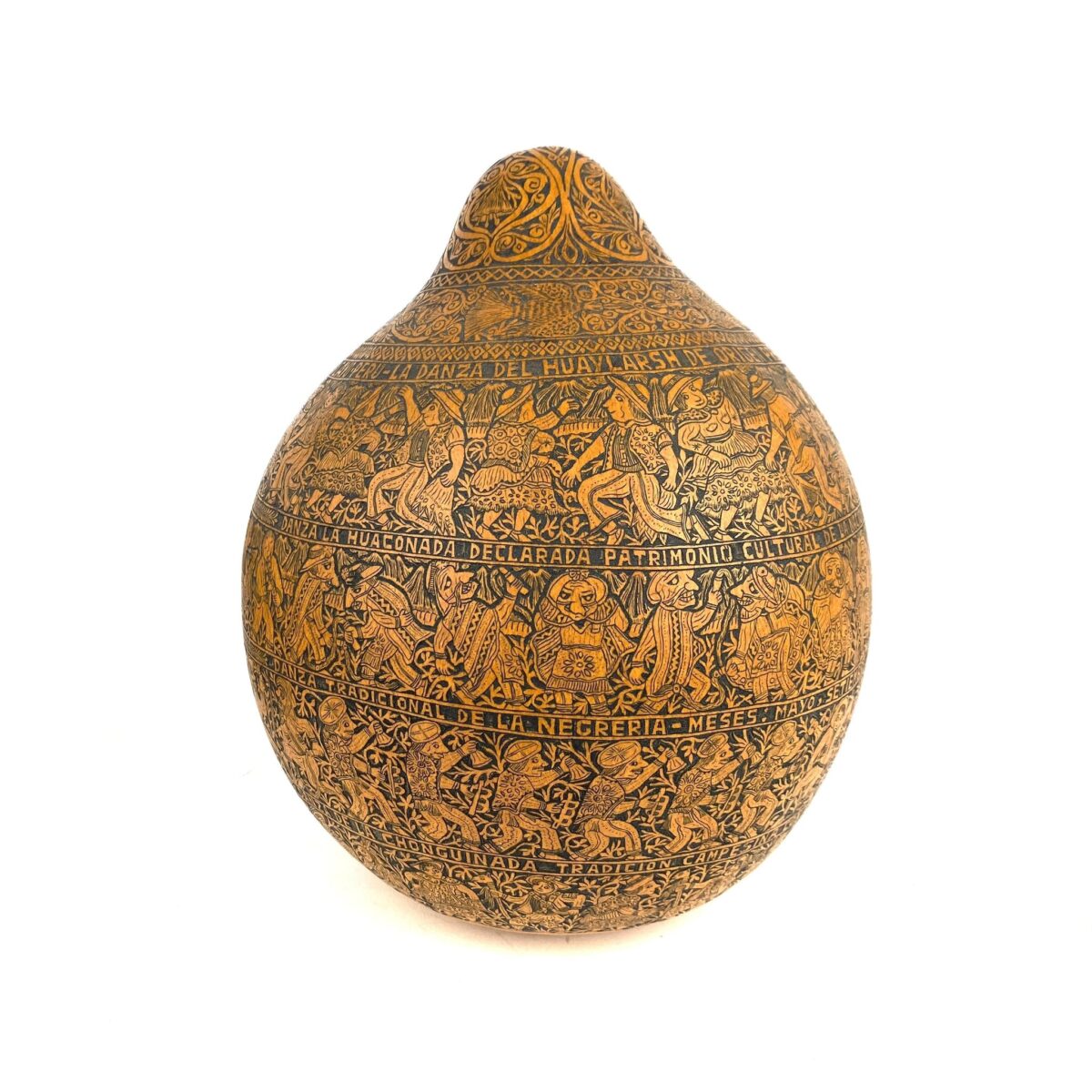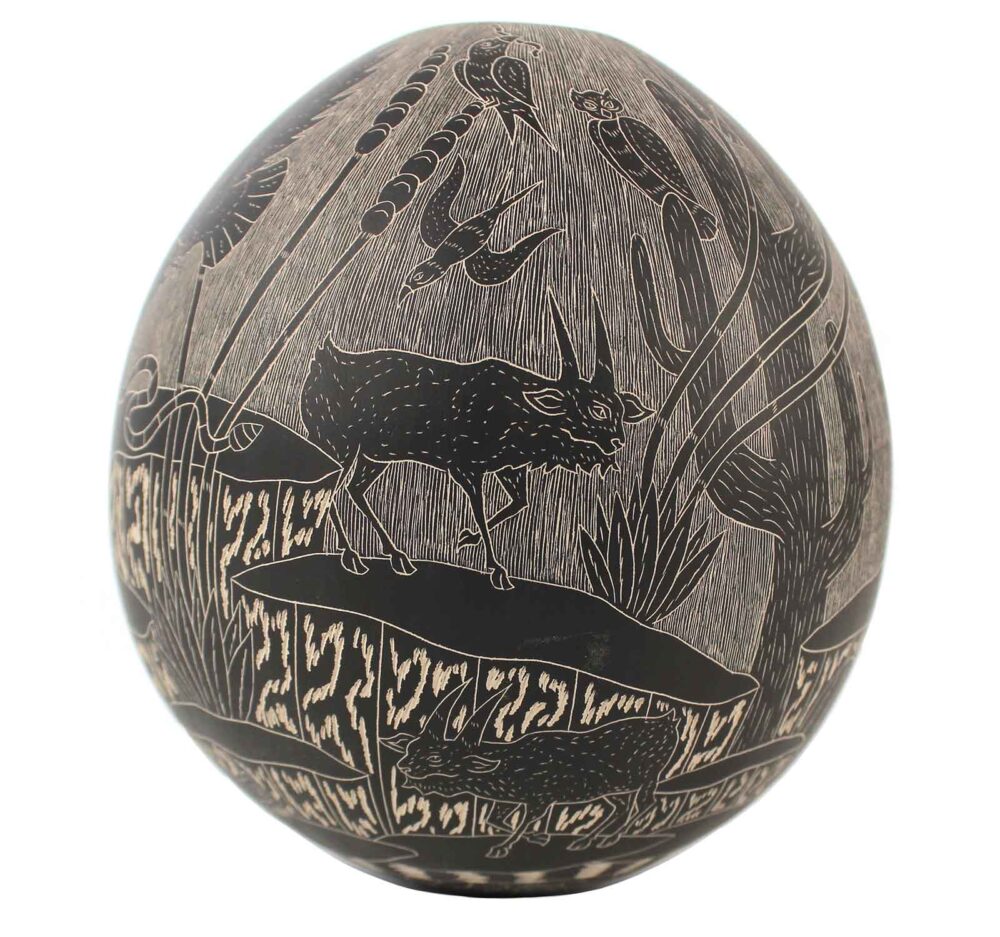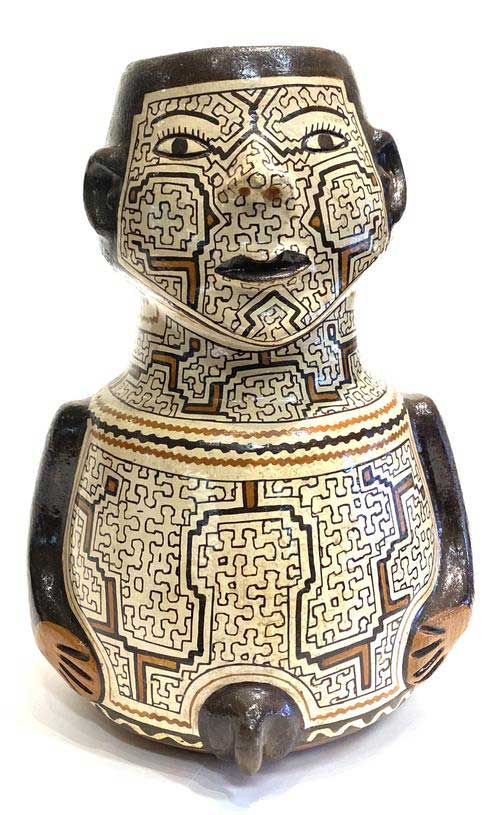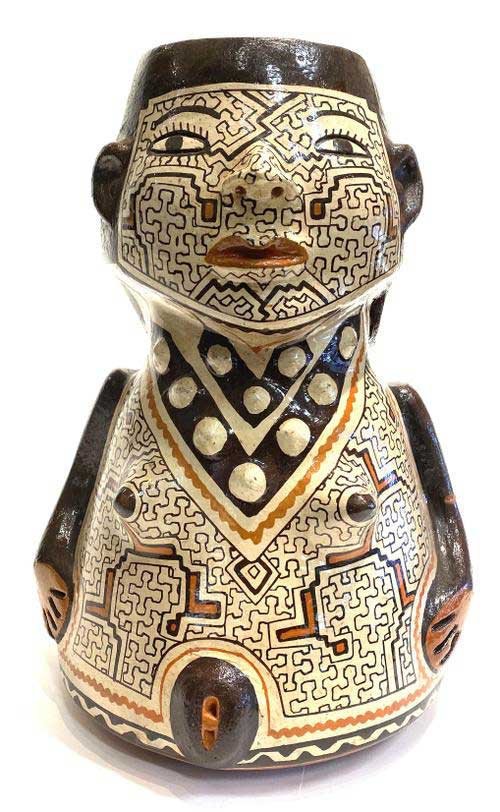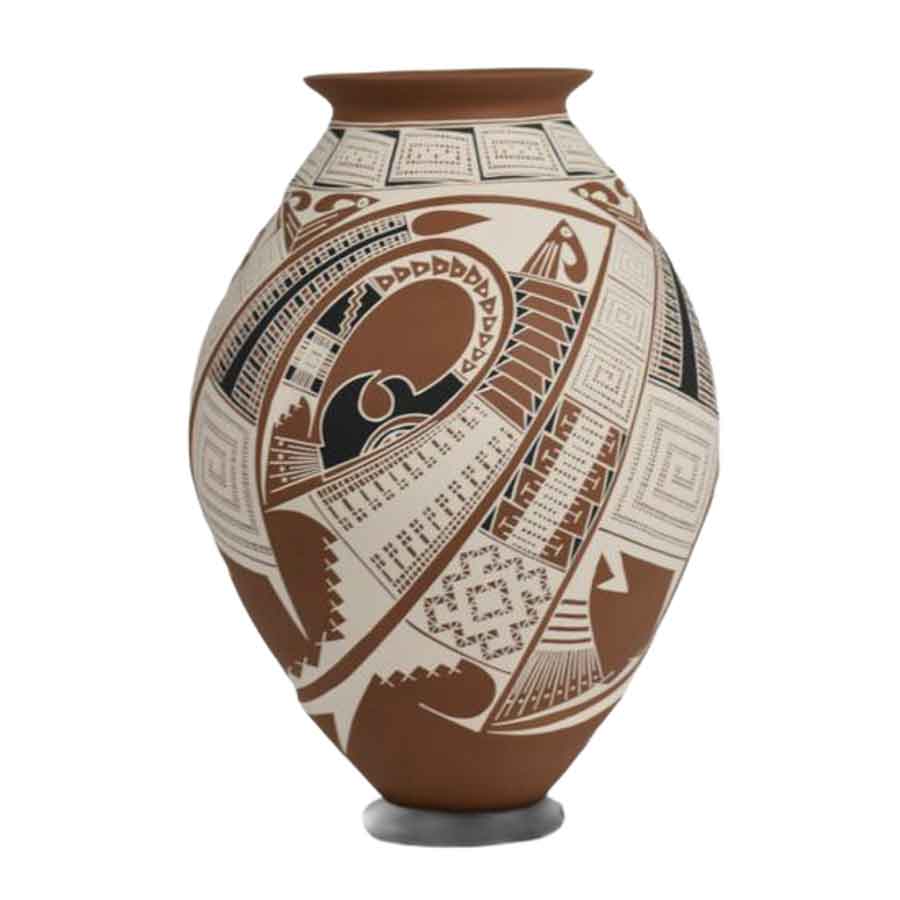Description
Gourds have been used in Peru for at least 4,500 years centuries for utilitarian and decorative purposes. Artist Tito Medina and his workshop of carvers use a uniquely Peruvian style to tell stories great and small about their culture and their everyday lives…in gourd form. Known locally as mate, gourds are grown and dried in coastal regions where water is plentiful. Many centuries old trade routes along which raw gourds traveled country are still intact today. Many rural homes still use gourds to drink home brewed corn liquor – chichi – or to store quinoa and rice. The sgraffito technique which transforms humble vegetables into storytelling documents has changed very little across millennia of gourd carving. Once dried and washed, the artisan uses an awl shaped from a nail to scratch through the hard outer surface of the gourd creating the pattern. Then liquid chalk or ash is used to fill in the carved surface and illuminate the design. Sometimes artisans use hot metal to heat-engrave shadows. Recently, modern dyes capable of penetrating the hard surface of the gourd have been added to increase the range of colors and appeal to modern buyers.

